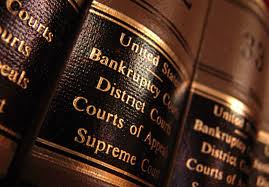- Being Sued by Credit Cards?
- Need Representation to stop Wage Deductions?
- Behind on Child Support and worried about going to jail?
- Creditors sometimes use harassment or illegal tactics to collect debts.
- Interest rates are raised by lenders without the borrowers' knowledge.
If You Are the Victim of Illegal Lender, Sales or Contract Practices, You Have Rights.
Consumers need to protect themselves against questionable or illegal practices by lenders, service providers, creditors and other businesses. It's not easy, but you do have rights. There are a number of Texas and federal laws that protect you when companies engage in misleading or fraudulent practices.
If you are in debt and a victim of certain types of illegal practices, you may even be able to collect damages or have your debt reduced. A debt collection defense attorney can help.
I have been practicing as an attorney in debtor-creditor law for over 14 years. As an experienced lawyer committed to the defense of unsuspecting folk, I fight aggressively for the rights of consumers. Whether you are facing debt from an unfair sub-prime mortgage, a confusing contract, threatening collection calls or another consumer complaint, contact me by e-mail or call (214) 340-4884 for a free consultation.
There are many laws protecting consumers, including those passed by the Texas legislature and the federal government’s consumer protection laws. Here are a few examples of these laws:
RESPA — The Real Estate Settlement Procedures Act
According to the U.S. Department of Housing and Urban Development, the Real Estate Settlement Procedures Act is designed to "help consumers become better shoppers for settlement services and to eliminate kickbacks and referral fees that unnecessarily increase the costs of certain settlement services." If your lender or mortgage broker violates this act, a consumer collection defense may be able to help you collect damages of up to three times what you paid for your settlement services.
The Truth in Lending Act (TILA)
The Truth in Lending Act protects consumers who are involved in credit transactions by requiring most creditors to clearly disclose important information about loans. Creditors must tell you under what circumstances they will impose a finance charge (such as interest on your monthly balance), how they will compute those charges, and how much your finance charge will be — and they have to reveal how much interest you will be paying as an annual percentage rate, not just a daily or monthly rate. If lenders violate the TILA, you have the right to recover your actual damages and treble punitive damages in Texas.
The Fair Debt Collection Practices Act
The Fair Debt Collection Practices Act protects you by prohibiting collection agencies from lying, harassing you, threatening you with jail, using tricks or doing certain other things to collect a debt. The worst offenders can be sued by the debtor for as much as $500,000 for violations. As a consumer collection defense lawyer, I can help you determine if your creditors have violated this law and whether you can sue for damages.
Contact Me for a Consultation
I am here to help people who have been defrauded or have faced other illegal behavior by lenders, debt collectors or other companies. To schedule a consultation about consumer collection defense, contact me by e-mail or call me at (214) 340-4884.
My office hours are Monday to Friday, 8:30 a.m. to 5:30 p.m., and evening and Saturdays by appointment. My law office is conveniently located close to Mockingbird Station at Central Expressway (75) and Mockingbird Lane.
Adam Austin Attorney at LawPhone: (214) 340-4884 |
|
Dallas Office 6060 N. Central Expressway |
|
Dallas debt relief and bankruptcy lawyer Adam Austin serves clients in communities such as Dallas, Plano, Frisco, Irving, Richardson, McKinney, Uptown, The Mid Cities, Hurst, Bedford, Duncanville, Desoto, Oak Cliff, Wylie, Murphy, Sachse, Allen, Grand Prairie, Arlington, Ft. Worth, Highland Park, and all of Dallas County, Collin County, Denton County, Tarrant County, Norhtern District of Texas, and Eastern District of Texas. |
|

